BMW X3 VS Toyota Proace City – Specs, Efficiency & Price Comparison
Which model is the better choice – the BMW X3 or the Toyota Proace City? We compare performance (398 HP vs 136 HP), boot capacity (570 L vs 912 L), efficiency (0.90 L vs 18.10 kWh5.30 L), and of course, the price (50900 £ vs 20800 £).
Find out now which car fits your needs better!
The BMW X3 (SUV) is powered by a Petrol MHEV, Diesel MHEV or Plugin Hybrid engine and comes with a Automatic transmission. In comparison, the Toyota Proace City (High Roof Estate) features a Petrol, Diesel or Electric engine and a Manuel or Automatic gearbox.
When it comes to boot capacity, the BMW X3 offers 570 L, while the Toyota Proace City provides 912 L – depending on what matters most to you. If you’re looking for more power, you’ll need to decide whether the 398 HP of the BMW X3 or the 136 HP of the Toyota Proace City suits your needs better.
There are also differences in efficiency: 0.90 L vs 18.10 kWh5.30 L. In terms of price, the BMW X3 starts at 50900 £, while the Toyota Proace City is available from 20800 £.
Compare all the key specs now and find out which model fits your lifestyle best!
BMW X3
The BMW X3 stands out in the competitive SUV market with its refined blend of performance and luxury. Its interior boasts high-quality materials and a design focused on driver comfort and convenience. With a robust engine lineup, the vehicle offers a balanced driving experience that caters to both urban settings and off-road adventures.
details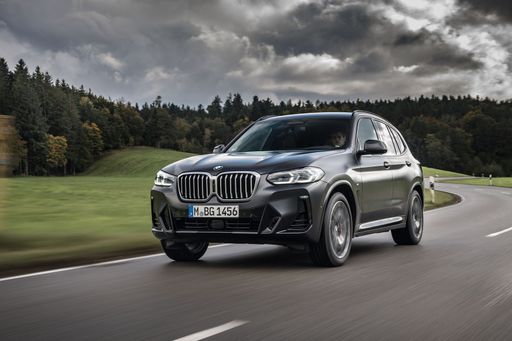 @ press.bmwgroup.com
@ press.bmwgroup.com
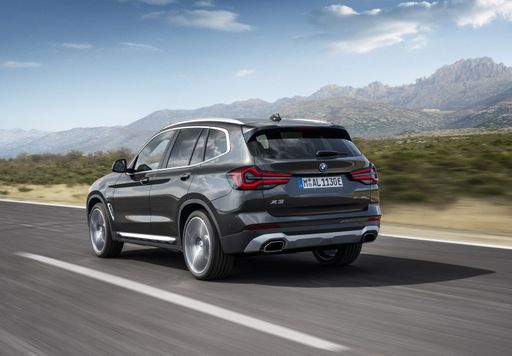 @ press.bmwgroup.com
@ press.bmwgroup.com
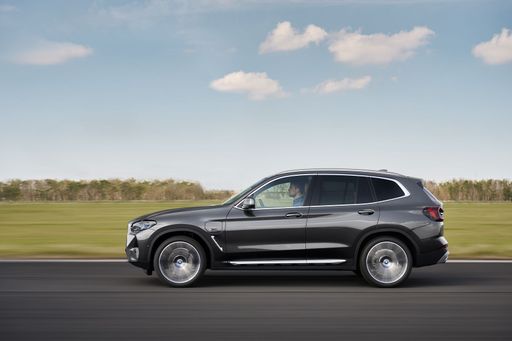 @ press.bmwgroup.com
@ press.bmwgroup.com
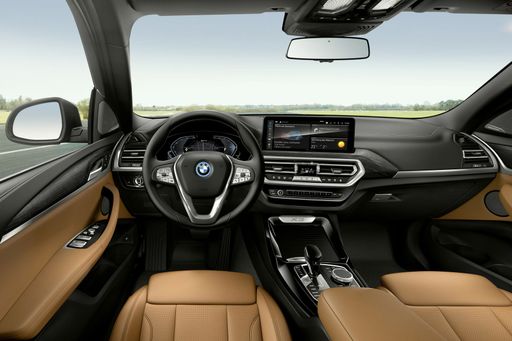 @ press.bmwgroup.com
@ press.bmwgroup.com
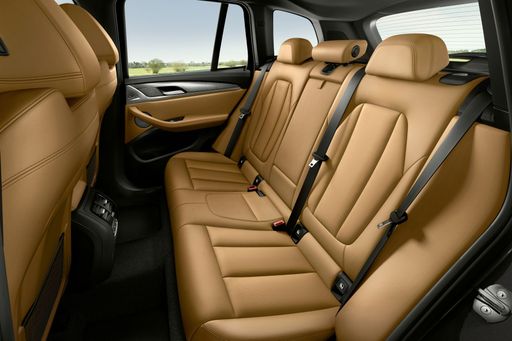 @ press.bmwgroup.com
@ press.bmwgroup.com
Toyota Proace City
The Toyota Proace City High Roof Combi is designed to seamlessly blend practicality with comfort, making it an ideal choice for families and businesses alike. Its versatile interior allows for flexible seating and cargo arrangements, catering to a variety of transport needs. Equipped with modern technology and advanced safety features, this vehicle ensures a reliable and secure driving experience.
details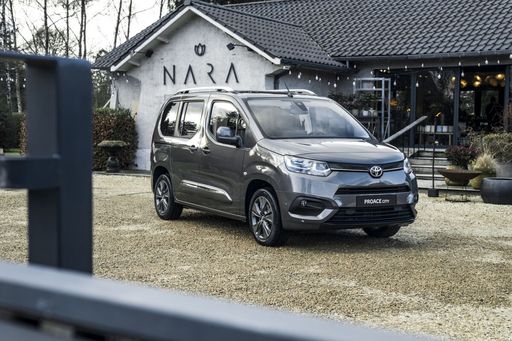 @ Toyota Deutschland
@ Toyota Deutschland
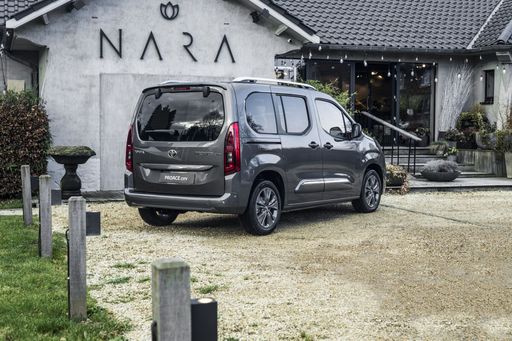 @ Toyota Deutschland
@ Toyota Deutschland
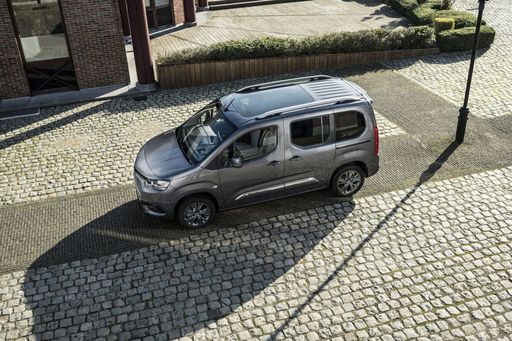 @ Toyota Deutschland
@ Toyota Deutschland
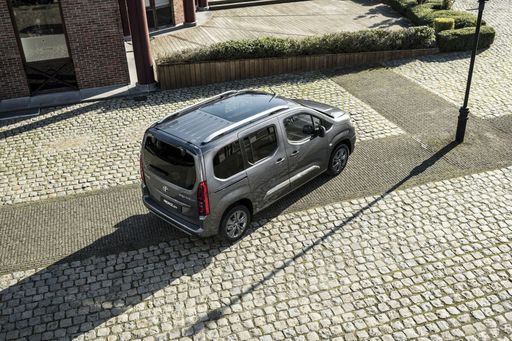 @ Toyota Deutschland
@ Toyota Deutschland
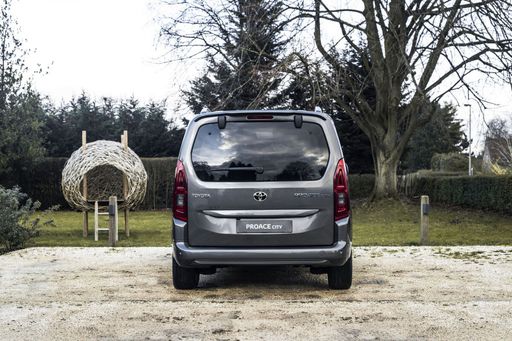 @ Toyota Deutschland
@ Toyota Deutschland
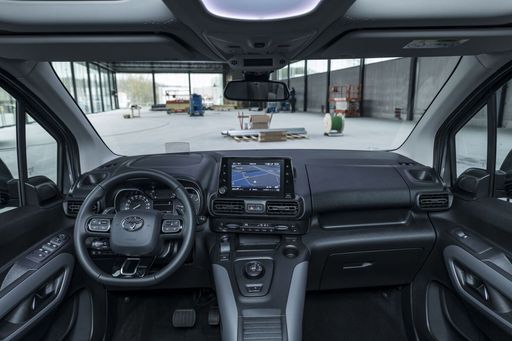 @ Toyota Deutschland
@ Toyota Deutschland

|

|
|
|
|
Costs and Consumption |
|
|---|---|
|
Price
50900 - 72400 £
|
Price
20800 - 42100 £
|
|
Consumption L/100km
0.9 - 7.7 L
|
Consumption L/100km
5.3 - 6.3 L
|
|
Consumption kWh/100km
-
|
Consumption kWh/100km
18.10 kWh
|
|
Electric Range
90 km
|
Electric Range
343 km
|
|
Battery Capacity
19.70 kWh
|
Battery Capacity
-
|
|
co2
21 - 175 g/km
|
co2
0 - 146 g/km
|
|
Fuel tank capacity
50 - 65 L
|
Fuel tank capacity
50 - 61 L
|
Dimensions and Body |
|
|---|---|
|
Body Type
SUV
|
Body Type
High Roof Estate
|
|
Seats
5
|
Seats
5 - 7
|
|
Doors
5
|
Doors
4 - 5
|
|
Curb weight
1930 - 2140 kg
|
Curb weight
1366 - 1664 kg
|
|
Trunk capacity
460 - 570 L
|
Trunk capacity
322 - 912 L
|
|
Length
4755 mm
|
Length
4401 - 4751 mm
|
|
Width
1920 mm
|
Width
1848 mm
|
|
Height
1660 mm
|
Height
1812 - 1818 mm
|
|
Payload
570 kg
|
Payload
525 - 869 kg
|
Engine and Performance |
|
|---|---|
|
Engine Type
Petrol MHEV, Diesel MHEV, Plugin Hybrid
|
Engine Type
Petrol, Diesel, Electric
|
|
Transmission
Automatic
|
Transmission
Manuel, Automatic
|
|
Transmission Detail
Automatikgetriebe
|
Transmission Detail
Schaltgetriebe, Automatikgetriebe
|
|
Drive Type
All-Wheel Drive
|
Drive Type
Front-Wheel Drive
|
|
Power HP
197 - 398 HP
|
Power HP
102 - 136 HP
|
|
Acceleration 0-100km/h
4.6 - 7.8 s
|
Acceleration 0-100km/h
11.5 - 13.2 s
|
|
Max Speed
215 - 250 km/h
|
Max Speed
135 - 186 km/h
|
|
Torque
330 - 670 Nm
|
Torque
205 - 300 Nm
|
|
Number of Cylinders
4 - 6
|
Number of Cylinders
3 - 4
|
|
Power kW
145 - 293 kW
|
Power kW
75 - 100 kW
|
|
Engine capacity
1995 - 2998 cm3
|
Engine capacity
1199 - 1499 cm3
|
General |
|
|---|---|
|
Model Year
2024 - 2025
|
Model Year
2024 - 2025
|
|
CO2 Efficiency Class
F, E, B
|
CO2 Efficiency Class
E, A
|
|
Brand
BMW
|
Brand
Toyota
|
BMW X3
Introducing the BMW X3: A Blend of Power and Innovation
The BMW X3 is a testament to the brand’s commitment to merging luxury with cutting-edge technology. This SUV not only offers impressive on-road performance but also showcases innovative features that cater to both petrolheads and eco-conscious drivers.
Powerful Performance Across the Range
The BMW X3 comes with various powertrain options to suit diverse driving preferences, ranging from efficient plug-in hybrids to powerful petrol and diesel mild-hybrids. With performance outputs ranging from 184 PS to an impressive 510 PS, the X3 proves its versatility on the road. Paired with BMW's renowned automatic transmission, each model offers a smooth and responsive driving experience complemented by the brand's xDrive all-wheel-drive system.
Leading-Edge Hybrid Technology
Among the X3's portfolio, the plug-in hybrid variants stand out with their optimal balance between efficiency and performance. These models boast electric-only ranges up to 90 km, ideal for urban driving with minimal emissions. Meanwhile, the mild-hybrid systems enhance efficiency by recuperating energy during deceleration and supporting the combustion engine, optimizing fuel consumption ranging from 0.9 L/100km to 10.8 L/100km depending on the model.
Contemporary Design with Practical Features
From a design perspective, the BMW X3 maintains its iconic SUV silhouette, characterized by robust proportions and sleek, aerodynamic lines. With dimensions of up to 4755 mm in length and a luggage capacity of up to 570 litres, it caters to both style enthusiasts and practical users. Additionally, the interior showcases BMW’s commitment to sophistication, featuring high-quality materials, state-of-the-art infotainment systems, and comprehensive driver-assistance technologies.
Efficiency Meets Performance
The X3's impressive performance figures are complemented by its responsible approach to CO2 emissions, aligning with EU efficiency standards. Enhanced by its comprehensive suite of driver aids and intelligent safety features, the X3 ensures both the thrill of driving and peace of mind.
Conclusion: The Ultimate Driving Companion
In essence, the BMW X3 represents the perfect intersection of dynamic performance, fuel efficiency, and modern-day technology. With options catering to diverse needs and preferences, it remains a leading choice for drivers seeking versatility, innovation, and luxury.
Toyota Proace City
The Versatile Toyota Proace City: A Gamechanger in the Van Segment
In the bustling world of automotive innovations, the Toyota Proace City stands out as a versatile, high-roof van that combines practicality with cutting-edge technology. Designed to cater to the needs of businesses and families alike, the Proace City makes a compelling case for itself with various powertrain options, impressive load capacity, and modern amenities. Let’s dive into the technical details and innovations that make this model a standout choice.
Powertrain Variety: Meeting Diverse Needs
The Toyota Proace City offers a diverse range of powertrains to meet different driving needs and preferences. Whether you're looking for the traditional power of internal combustion engines or the modern efficiency of electric propulsion, the Proace City has got you covered. The petrol options include a 1.2 Turbo engine, producing 110 PS with a consumption rate of 6.3 L/100km. For diesel enthusiasts, a robust 1.5 D-4D Diesel engine is available, offering power outputs up to 130 PS and a consumption as low as 5.3 L/100km. Moreover, the electric versions pack a 50 kWh battery that delivers 136 PS with an efficient consumption rate of 19.4 kWh/100km, providing an impressive range of up to 284 km.
Technological Advancements and Efficiency
Innovation in the Toyota Proace City extends beyond its engines. It boasts an impressive array of technologies aimed at enhancing efficiency and safety. The CO2 efficiency classes range from A to E depending on the model, with emissions that meet Euro 6 standards, reflecting Toyota’s commitment to sustainability. The integration of various automatic and manual transmission options provides drivers with flexibility and control, ensuring a smooth and efficient driving experience.
Comfort and Practicality: Inside the Proace City
Step inside the Toyota Proace City, and you are greeted with a spacious and well-appointed interior. Depending on the configuration, the van offers seating for five to seven passengers, making it ideal for both family use and commercial applications. The boot capacity ranges from 322 to 912 litres, ensuring ample space for all your cargo needs. With maximum payloads of up to 869 kg, the Proace City is designed to handle heavy-duty tasks without compromising on passenger comfort.
A Design for Every Purpose
The Toyota Proace City spans a length between 4401 mm and 4751 mm, providing a substantial yet manageable vehicle size. The consistent width of 1848 mm and height reaching up to 1818 mm offer a solid road presence while ensuring maneuverability in urban settings. The notable variant selection includes designations like Club, Comfort, Flow, and Team Deutschland, each with optional automatic configurations to match different lifestyle and business demands.
Affordability and Operational Costs
With a starting price range from €24,835 to €51,245, the Toyota Proace City provides an accessible entry into the segment of high-roof vans. Its economical efficiency extends to operational costs, with monthly expenses ranging from €1,071 to €1,181, showcasing financial viability for both private owners and fleet operators alike.
Conclusion
The Toyota Proace City stands as a formidable contender in the van market, offering a blend of flexibility, efficiency, and modern technology. Its range of powertrains, spacious interior, and low operating costs make it a practical choice for anyone from urban professionals to family adventurers. Whether it's for work or leisure, the Proace City proves that a utility vehicle can be both functional and sophisticated.
The prices and data displayed are estimates based on German list prices and may vary by country. This information is not legally binding.
